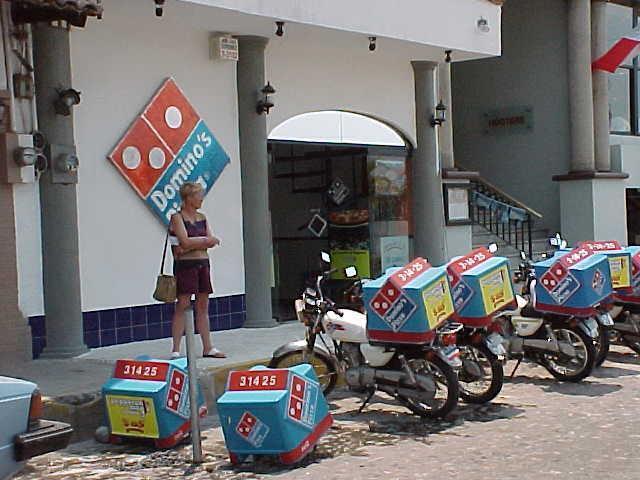02May2001 JAPAN: Fast food outlets beef up sales by cost cutting.
Recent competition between fast-food chains has sent prices plummeting, but the rivalry has been avoided by some businesses that see a danger in dropping their prices.
Last September, major gyudon chains Yoshinoya D&C Co. and Zensho Inc.
reduced the prices of their gyudon dishes - bowls of rice topped with beef - to 250 yen. Their move was followed this month by Matsuya Foods Co., which lowered its curry rice to 290 yen.
Each of the chains says the quality of their dishes remains unaffected by the price drops.
"We get people asking half-jokingly if we're bringing in foot-and-mouth infected beef from Europe, but of course the beef and rice we're using is the same as what we had before the price cuts," said a spokesman for Zensho, which operates "Sukiya" restaurants. The company says its purchase of a smaller chain has enabled it to buy larger quantities of beef for less. It has also implemented a number of cost-cutting measures at its outlets, such as the removal of dishes that are expensive to make.
Other chains also stress the quality of their menus. "We haven't switched over to cheap ingredients or cut personnel expenses," said a spokesman for the Kobe Lamptei chain, which began offering 290-yen dishes from March 1.
For most companies, the lowering of prices seems to have proven beneficial.
Matsuya Foods says it has launched several campaigns from the first half of last year to increase sales, but the most effective one was the dropping of prices. After the price cuts, its customer numbers shot rose 30 percent, and sales climbed 10 percent.
Other chains, however, have not been so lucky. Sales at Yoshinoya base of existing stores fell by 10 percent in March - when Sukiya and Lamptei cut their prices - sending a warning to other chains in the food business. Yoshinoya says it does not intend to continually participate in price wars with other companies, while another company, Nakau Co., says it does not intend to reduce prices at all.
But analysts say the competition is likely to remain.
"It was McDonalds that sparked price competition in the food-service industry, and this has moved to gyudon," one analyst said. "Competition is likely to become more severe and expand to encompass boxed lunches sold at convenience stores."
All Material Subject to Copyright
Copyright 2001:. All Rights Reserved.
14May2001 JAPAN: Mos Food to Cut FY 2000 Dividend to 10 Yen
Tokyo, May 14 (Jiji Press) - Mos Food Services Inc. said Monday it plans to cut annual dividend payments for fiscal 2000 to 10 yen per share from the preceding term's 28 yen.
For the year ended March 31, the hamburger store chain operator reported an unconsolidated net profit of 784 million yen, down 41.5 pct.
It also announced a consolidated net profit of 1,017 million yen for the year, down 48.8 pct from a year before.
In the current business year to March 2002, the company estimates a group net profit of 1.2 billion yen, up 18.0 pct from the previous year. It plans to pay annual dividend of 16 yen per share.
Details of Mos Food Services' consolidated results for the year ended March 2001 and estimates for the year to March 2002 are as follows.
SALES RECURRING NET EPS
MARCH '01 70,819 2,973 1,017 32.25
MARCH '00 71,554 4,416 1,987 61.00
MARCH '02 (EST) 71,000 3,300 1,200 38.02
(Sales and profits are in millions of yen, earnings per share in yen.)
Sources: JIJI PRESS NEWSWIRE 14/05/2001

|



